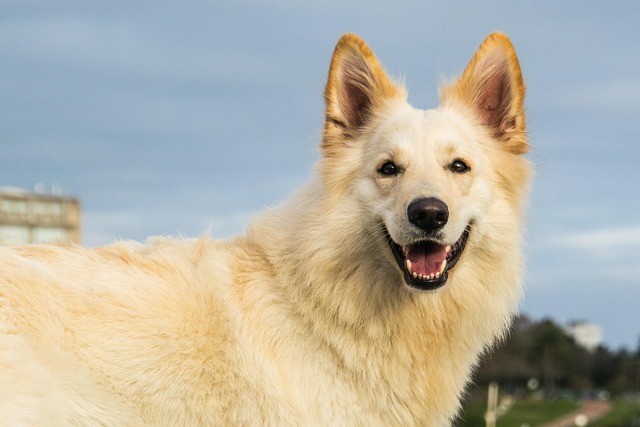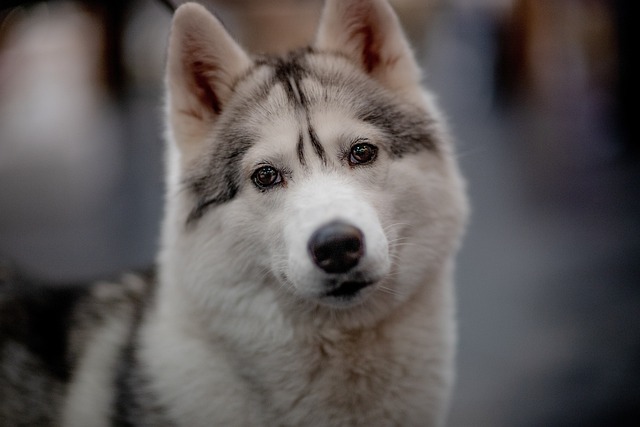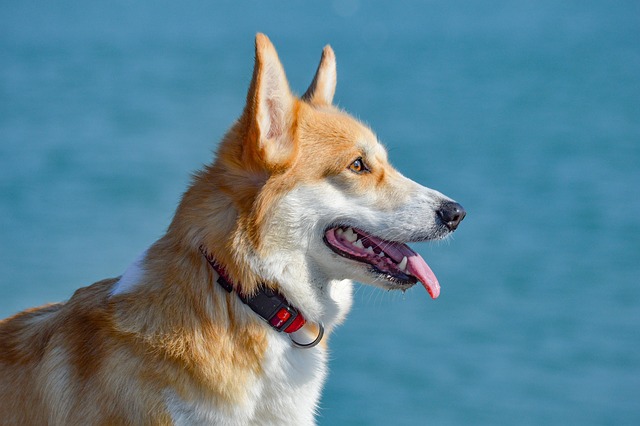
How to toilet train a springer spaniel puppy?
When a fluffy springer spaniel puppy stumbles into the house on unsteady little paws, it brings not only endless joy but also growth tasks that require patient guidance.
Training a dog to become a search dog is a challenging yet extremely rewarding journey. During this process, we can not only witness the dog's transformation from ignorance to professionalism but also establish a deep and unique emotional bond with them.
First and foremost, selecting the right dog breed is of utmost importance. Some dog breeds are naturally endowed with the advantages to become search dogs. For example, German Shepherds are intelligent, loyal, and have a strong working drive; Belgian Malinois are energetic, agile, and have a high enthusiasm for training; Labrador Retrievers have a gentle temperament and a keen sense of smell, and they perform outstandingly in tracking and search missions. Of course, apart from the breed, individual differences should not be overlooked. We should choose puppies that are curious, lively, and respond positively to rewards, as they often have greater potential. When we select that special dog, it's like embarking on an adventure full of uncertainties and surprises.
Before the formal training, it is crucial to build a solid foundation. This is just like building a skyscraper; the stronger the foundation, the greater the room for future development. Starting from the puppy stage, basic obedience training should be carried out for the dog, including commands such as "sit", "lie down", "come", and "stay". This not only enables the dog to learn to follow our instructions but also cultivates their self-discipline and concentration. Just imagine how reassuring and proud it is to have a dog that can quickly and accurately execute the owner's commands during a search mission. During the training process, use a gentle but firm tone, combined with appropriate rewards, such as delicious snacks or affectionate strokes. Every time the dog executes the command correctly, give the reward promptly so that they understand that this behavior is right and will be rewarded.
 One of the most important skills of a search dog is its keen sense of smell. A dog's sense of smell far surpasses that of humans, and what we need to do is to stimulate and strengthen this ability. We can start with simple scent games, such as hiding the dog's favorite toy or snack in a corner of the room and then letting them find it. As the dog's ability improves, gradually increase the difficulty by hiding the item in a more secluded place outdoors or mixing it with other distracting items. During this process, pay attention to observing the dog's performance. When they find the target through their sense of smell, give them enthusiastic encouragement and rewards to make them passionate about exploring the world using their sense of smell.
One of the most important skills of a search dog is its keen sense of smell. A dog's sense of smell far surpasses that of humans, and what we need to do is to stimulate and strengthen this ability. We can start with simple scent games, such as hiding the dog's favorite toy or snack in a corner of the room and then letting them find it. As the dog's ability improves, gradually increase the difficulty by hiding the item in a more secluded place outdoors or mixing it with other distracting items. During this process, pay attention to observing the dog's performance. When they find the target through their sense of smell, give them enthusiastic encouragement and rewards to make them passionate about exploring the world using their sense of smell.
The training of tracking ability is also essential. Special tracking cloth can be used to leave a specific scent on it, and then the dog is allowed to track along the scent trail. At the beginning, the route can be set to be simple. As the dog's tracking ability improves, gradually increase the complexity and length of the route. During the tracking process, the dog may encounter various interfering factors, such as the smell of other animals or a complex environment, but we should trust their abilities and give them enough time and space to overcome difficulties.
In addition to skill training, physical training is equally important. Search dogs need to have good physical fitness to carry out missions in various complex environments. We can take the dog for appropriate exercises such as running and swimming in daily life to enhance their endurance and physical strength. At the same time, pay attention to arranging the training intensity and rest time reasonably to avoid the dog from being over-fatigued.
During the entire training process, the investment of emotion is indispensable. Dogs are very sensitive animals, and they can sense our emotions and attitudes. Treat them with love and patience. Every training session is an opportunity for intimate communication with the dog. When the dog encounters difficulties or performs poorly, do not punish them but give them encouragement and guidance instead. We should let the dog know that no matter what happens, we will be there to support them.
When the dog gradually masters various skills after a long period of training, we can try to let them participate in some simulated search scenarios to test the results of their training. For example, in a simulated disaster scene, let the dog find the hidden "survivors". During this process, adjust the training methods and strategies in a timely manner according to the dog's performance to further improve their abilities.
Training a dog to become a search dog requires us to invest a great deal of time, energy, and love. But when we see the dog demonstrating its abilities in search missions and making contributions to society, all the efforts become worthwhile. This is not only the exploration of the dog's potential but also a growth journey full of love and warmth.

When a fluffy springer spaniel puppy stumbles into the house on unsteady little paws, it brings not only endless joy but also growth tasks that require patient guidance.

When we take our dogs for a walk or when there are guests at home, we sincerely hope that our dogs can sit still and show their well-behaved side.

Walking a dog should be a wonderful time shared between the owner and the beloved pet. However, when the dog suddenly exerts force and drags the leash wildly, the comfort is instantly replaced by tension.

When the fluffy little puppy comes to our home, its innocent and lovely appearance instantly captures our hearts.

In the late night, when the whole world is immersed in tranquility, the dog at home suddenly starts barking incessantly. The sharp barking breaks through the silence,

In the quiet afternoon or in the dead of night, the Siberian Husky at home suddenly starts barking loudly without any warning,